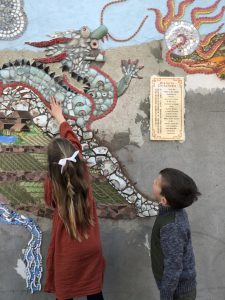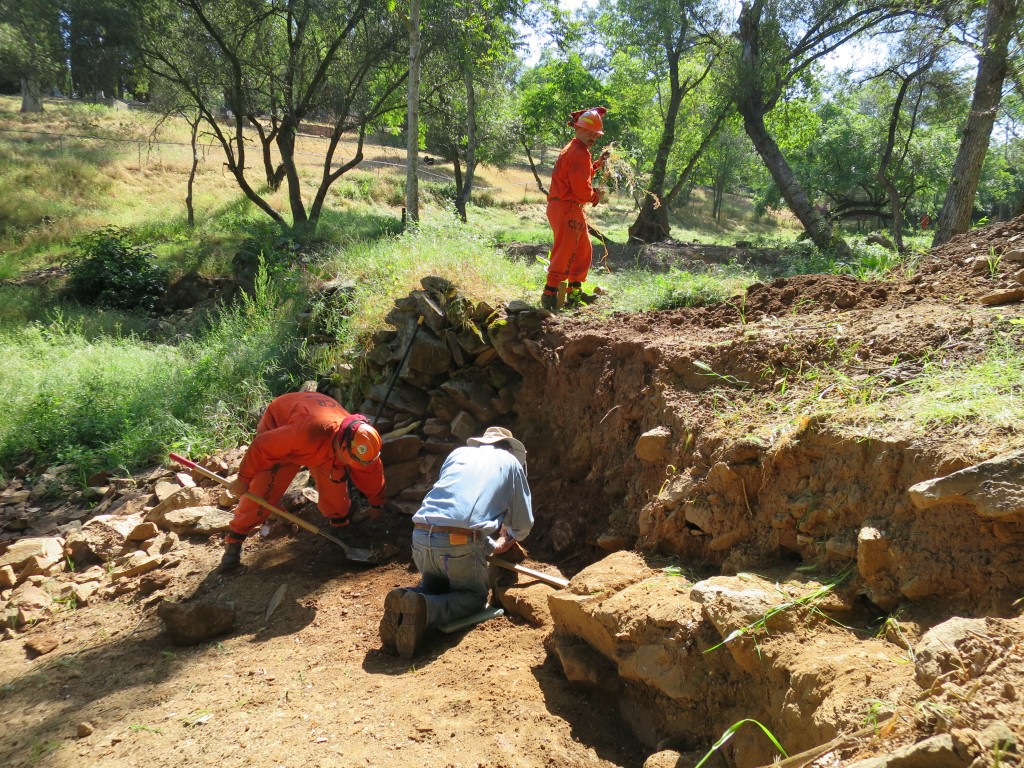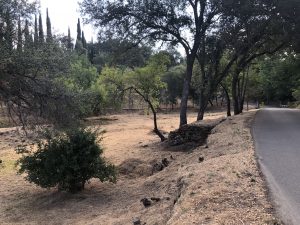
Children get a closeup view of the Chinatown Gardens mural which incorporates pottery fragments found onsite.
After a fire removed a 100-year-old cover of blackberry vines, what is now known as the Chinatown Gardens Archaeological District near Mokelumne Hill, California, was revealed. It is the only known extant commercial Chinese garden in California. Used from 1848 to 1898, these gardens were once commonplace during the Chinese Diaspora and occurred with the settlement of the American West. Beginning in the mid-19th century, Chinese immigrants came to central California to join the Gold Rush in the western foothills of the Sierra Nevada. Many joined the ranks of miners, while some became merchants and provided the goods and food with which the immigrants were familiar. However, due to discriminatory legislation passed by Congress, such as the Chinese Exclusion Act of 1882, and a devastating fire that occurred on the property in 1898, many left the area and abandoned the gardens. Chinese populations have traditionally been omitted from written histories, and despite making up 22 percent of the population of Calaveras County in 1860, the historic Chinese population of Mokelumne Hill is no exception. This omission highlights the importance of preserving archaeological remains representing Chinese and other non-White communities.
The significance of the Chinatown Gardens Archaeological Preserve was recognized by the Mokelumne Hill History Society (MHHS), and when the 4-acre property came up for sale in 2015, the Society acquired it. Under their care, the property was cleared, and features were identified and preserved. Surviving features of the gardens include terrace walls that supported leveled areas used for growing food, a rock-lined stream diversion channel, the remains of a constructed pond reportedly used to grow water chestnuts, a platform supported by stone retaining walls likely used as a loading dock, a rock-lined cistern, diversion ditches, the remains of at least three houses that may have belonged to garden caretakers, a stone roasting oven, and the foundation of what was once a Buddhist temple.
Due to MHHS’s efforts, the Chinatown Gardens Archaeological District was listed on the National Register of Historic Places in 2023. The Conservancy would especially like to thank MHHS member Julia Costello, who brought the property to the Conservancy’s attention and facilitated its purchase. The garden’s location in the center of the present-day Mokelumne Hill community makes it ideal to educate the public about the importance of archaeology and an ideal site to learn more about the contribution of historic Chinese populations during the settlement of the western United States.





